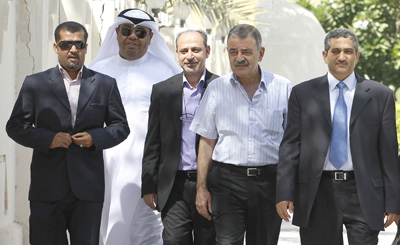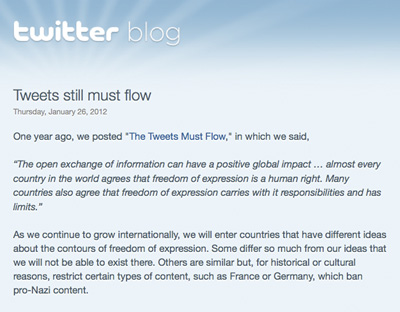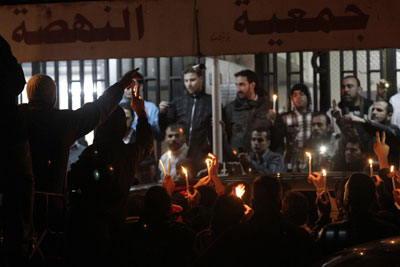Middle East & North Africa
2012

A year of repression: Bahrain continues crackdown on press
In the year since peaceful protests began in Bahrain on February 14, 2011, the government has targeted the press corps with assault, detention, harassment, and torture to obstruct their coverage. My organization, the Gulf Centre for Human Rights, has documented a systematic campaign by authorities to silence coverage of our country’s unrest. Here are just…

Can selective blocking pre-empt wider censorship?
Last week, Twitter provoked a fierce debate online when it announced a new capability–and related policy–to hide tweets on a country-specific basis. By building this feature into its website’s basic code, Twitter said it hoped to offer a more tailored response to legal demands to remove tweets globally. The company will inform users if any…
Google+, real names and real problems
At the launch of Google+, Google’s attempt to create an integrated social network similar to Facebook, I wrote about the potential benefits and risks of the new service to journalists who use social media in dangerous circumstances. Despite early promises of relatively flexible terms of service at Google+, the early days of implementation were full…
Tunisian media: One year after the revolution
The doses of freedom that the Tunisian revolution injected into national media have not been sufficient to revive it after decades of systematic destruction. It is not surprising that our evaluation of media one year after the tyrant fell reveals more negativity and pessimism.
Online publishers, developers sentenced to death in Iran
Politically-related Iranian prosecutions often take place in near secrecy, with unclear charges morphing and changing over time. It doesn’t get any easier to work out the motivations of prosecutors when the charges are connected to technology.

Jacquier’s killing raises chilling questions on Syria
The killing on January 11 of a French TV reporter has sent a chill through the international press corps trying to cover the violence in Syria. Gilles Jacquier, 43, who was on assignment for the French public service channel France 2, was a seasoned journalist and the laureate of France’s most prestigious journalism prizes. As…